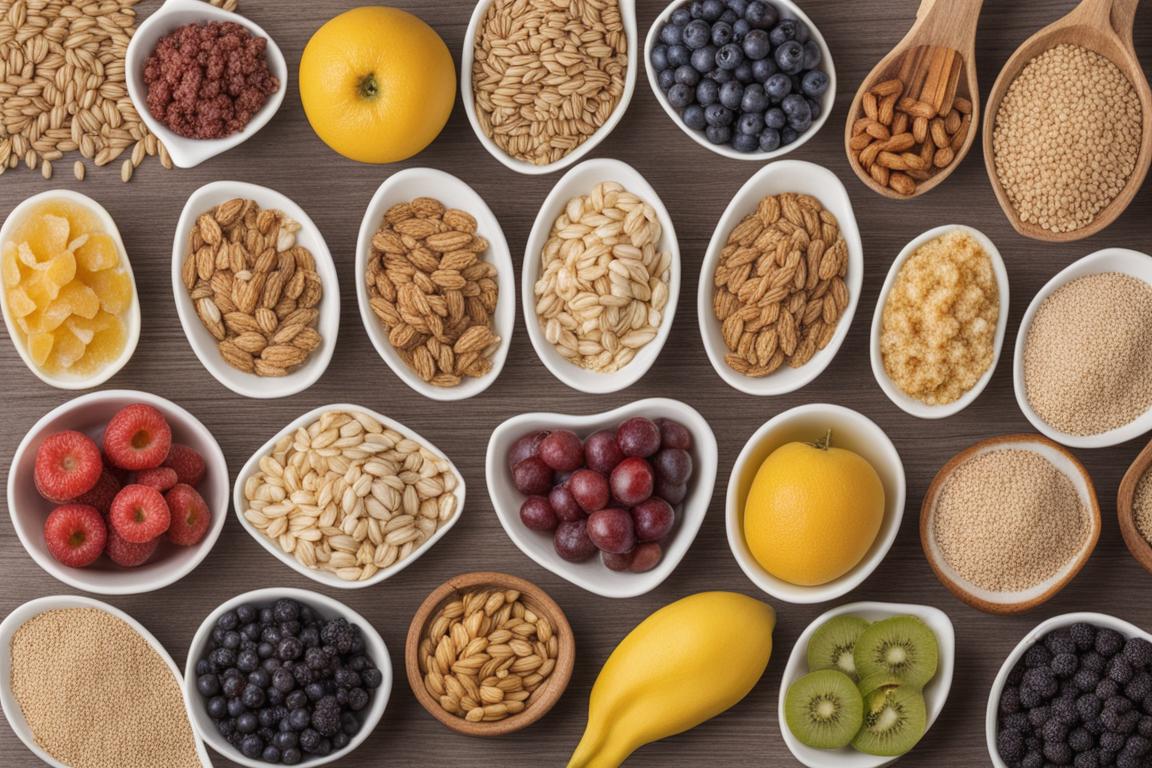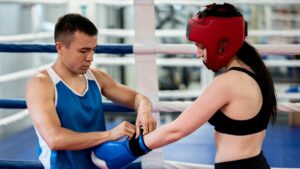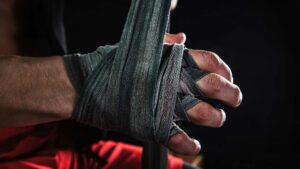In the world of combat sports, Muay Thai stands out not just for its rigorous physical demands but for the unique nutritional blueprint it necessitates. If you’re a Muay Thai fighter aiming to elevate your performance, understanding the intricacies of nutrition specific to this sport is not just beneficialit’s imperative. Let’s dive into the world of Muay Thai nutrition, combining expert insights, personal anecdotes, and the latest research to guide you toward optimal performance inside the ring.
Learn about Nutrition for Muay Thai Fighters
- Calories needed depend on training intensity and weight goals.
- Protein intake is crucial for muscle repair and growth.
- Carbohydrates are essential for energy during training.
What is Muay Thai?
Muay Thai, often referred to as “The Art of Eight Limbs,” combines the use of fists, elbows, knees, and shins, making it one of the most comprehensive striking arts in the world. Originating from Thailand, this combat sport is known for its intensity, discipline, and the incredible physical conditioning of its practitioners. Beyond just a sport, Muay Thai is a lifestyle for many, requiring dedication not just in the gym but in all aspects of life, especially nutrition.
What is Muay Thai Nutrition?
When we talk about Muay Thai nutrition, we’re referring to a tailored approach to eating that supports the intensive training regimen and recovery needs of fighters. This doesn’t just mean gulping down protein shakes and eating chicken breasts. It’s about a holistic approach that includes the right balance of macronutrients, micronutrients, and hydration to fuel the demanding workouts and facilitate recovery.
How Many Calories Do Muay Thai Fighters Need?
The caloric needs of Muay Thai fighters can vary widely based on factors such as weight, age, gender, training intensity, and individual metabolism. However, a good starting point for active fighters is to consume between 2,500 to 3,500 calories daily. This range ensures enough energy for intense training sessions while supporting muscle repair and growth. Remember, these are ballpark figures, and fine-tuning your intake based on performance and recovery is crucial.
How Much Protein Do Muay Thai Fighters Need?
Protein is paramount for muscle repair and growth, making it a cornerstone of any fighter’s diet. For Muay Thai athletes, aiming for 1.2 to 2.0 grams of protein per kilogram of body weight daily is a solid guideline. This ensures the body has enough amino acids to repair muscle tissues damaged during grueling training sessions. Incorporating a variety of protein sources, such as lean meats, fish, eggs, and plant-based options like lentils and quinoa, can help meet these needs.
How Much Carbohydrate Do Muay Thai Fighters Need?
Carbohydrates are the body’s primary energy source, especially crucial for high-intensity sports like Muay Thai. Fighters should aim to get about 40-60% of their daily calories from carbohydrates. This translates to roughly 3 to 5 grams per kilogram of body weight. Quality matters here; focusing on complex carbohydrates like whole grains, fruits, and vegetables ensures a steady energy release that can support both training and recovery.
How Much Fat Do Muay Thai Fighters Need?
While often vilified, fats are essential for hormone production, energy, and nutrient absorption. For fighters, getting about 20-30% of daily calories from fats is a good target. This includes a mix of saturated, monounsaturated, and especially polyunsaturated fats. Think avocados, nuts, seeds, and fatty fish like salmon to cover these bases.
What Should Muay Thai Fighters Eat Before Training?
Pre-training meals should focus on providing a sustained energy release. A combination of complex carbohydrates with a moderate amount of protein about 2-3 hours before training works well. A typical meal could be a bowl of oatmeal with sliced bananas and a scoop of almond butter. This ensures your body has the fuel it needs without sitting heavy in your stomach.
What Should Muay Thai Fighters Eat After Training?
Post-training nutrition is all about recovery. This means replenishing glycogen stores with carbohydrates and providing protein to aid in muscle repair. A smoothie with whey protein, a banana, and some berries, alongside a handful of spinach, can be a perfect quick fix. For those who prefer solid food, grilled chicken with sweet potatoes and mixed vegetables is a great option.
What Should Muay Thai Fighters Eat on Rest Days?
Rest days are not an excuse to let your nutrition slide. On these days, focus on nutrient-dense foods that support recovery and inflammation reduction. Slightly reducing carbohydrate intake in favor of more fats and proteins can be beneficial, as your energy needs are lower. However, maintaining a good intake of fruits and vegetables to supply vitamins and minerals is key.
What Should Muay Thai Fighters Eat to Lose Weight?
Losing weight, especially when trying to make a weight class, needs to be done intelligently to avoid impacting performance. A slight caloric deficit, high protein intake, and maintaining hydration levels can support weight loss while minimizing muscle loss. Foods that are high in volume but low in calories, such as leafy greens and other non-starchy vegetables, can help keep you full without overdoing calories.
What Should Muay Thai Fighters Eat to Gain Weight?
Gaining weight, particularly lean muscle mass, requires a caloric surplus and an emphasis on protein. Eating calorie-dense foods that are also nutrient-rich, such as nuts, seeds, avocados, and whole grains, can help achieve this surplus. Incorporating smoothies and snacks between meals can also contribute additional calories needed for weight gain.
What Should Muay Thai Fighters Eat to Build Muscle?
To build muscle, the focus should be on consuming enough protein distributed throughout the day, alongside a slight caloric surplus to support growth. Meals should be balanced, incorporating carbohydrates and fats alongside protein to ensure the body has all it needs for muscle synthesis. Resistance training, in addition to your Muay Thai regimen, can further signal the body to build muscle.
Real-Life Nutrition Journey of a Muay Thai Fighter
A Fighter’s Perspective on Building Muscle
As a dedicated Muay Thai fighter, I, Sarah Thompson, struggled to increase my muscle mass while maintaining agility and speed for fights. Following the recommended nutrition guidelines, I focused on increasing my protein intake to support muscle growth. By incorporating lean sources of protein like chicken, fish, and tofu into every meal, I was able to see significant improvements in my muscle strength and endurance during training sessions. Additionally, I paid close attention to consuming an adequate amount of carbohydrates to fuel my intense workouts and aid in muscle recovery. This balanced approach to nutrition not only helped me build lean muscle mass but also enhanced my overall performance in the ring.
What Should Muay Thai Fighters Eat to Improve Recovery?
Foods rich in antioxidants, omega-3 fatty acids, and certain minerals can aid in recovery by reducing inflammation and supporting muscle repair. Incorporating fatty fish, berries, turmeric, and leafy greens into your diet can help. Additionally, ensuring adequate hydration and electrolyte balance plays a crucial role in recovery, especially after intense workouts or fights.
What Should Muay Thai Fighters Drink?
Hydration is non-negotiable for fighters. Water is the go-to, but during intense training sessions or in the aftermath of a sweaty fight, replenishing electrolytes with sports drinks or coconut water can be beneficial. Avoiding excessive alcohol and caffeine, which can dehydrate the body and impact recovery, is also crucial.
Insider Tip: “Always listen to your body. Nutrition is deeply personal, and what works for one fighter might not work for another. Experimenting under the guidance of a nutritionist can help you find your optimal diet.” – Coach K, Muay Thai Trainer
In conclusion, Muay Thai nutrition is about more than just eating healthy. It’s about strategically fueling your body to support the demands of training, recovery, and performance. By incorporating the guidelines discussed here and tailoring them to your individual needs, you can take a significant step toward becoming a stronger, more resilient fighter. Remember, nutrition is a journey, not a one-time adjustment. Stay curious, stay dedicated, and let your nutritional discipline propel you to new heights in the ring.
Answers To Common Questions
Q. Who benefits from the best nutrition for Muay Thai fighters?
A. Muay Thai fighters who want optimal performance and recovery.
Q. What makes a nutrition plan the best for Muay Thai fighters?
A. A balanced diet rich in lean proteins, complex carbs, and essential fats.
Q. How can a nutrition plan improve a Muay Thai fighter’s performance?
A. It can enhance stamina, strength, focus, and overall energy levels.
Q. What if I can’t afford expensive nutrition for Muay Thai training?
A. You can still achieve good results with budget-friendly options.
Q. How often should Muay Thai fighters adjust their nutrition plans?
A. Regularly reassess and modify as needed to match training intensity.
Q. What if I don’t see immediate results from changing my nutrition?
A. Results may take time, be patient and consistent with your plan.





















